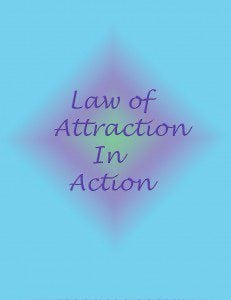 Many of us experience anxiety occasionally when something stressful is happening that feels out of our control. Some of us can take it to the next level and let it rule our lives. I wanted you to understand more about anxiety and how to control it so I asked Jason Schiffman, MD, MA, MBA, a psychiatrist with the UCLA Anxiety Disorders Program and is the Editor-in-Chief and Medical Director of Anxiety. org, some questions about anxiety. Here’s what he had to say.
Many of us experience anxiety occasionally when something stressful is happening that feels out of our control. Some of us can take it to the next level and let it rule our lives. I wanted you to understand more about anxiety and how to control it so I asked Jason Schiffman, MD, MA, MBA, a psychiatrist with the UCLA Anxiety Disorders Program and is the Editor-in-Chief and Medical Director of Anxiety. org, some questions about anxiety. Here’s what he had to say.
How do you define anxiety? Anxiety is a physiological and emotional response to perceived danger. It involves many different systems within our body but is orchestrated by a part of our brain called the amygdala. Once the our amygdala decides we are in danger, it sends out signals that cause our heart rate to increase, our pupils to dilate, our hands to become sweaty, and blood to move to our muscles. These changes are sometimes called the “fight or flight” response because they are our body’s way of preparing us to deal with a perceived threat.
How can someone recognize if my anxiety is normal or if it’s something I should get help for? Anxiety is natural and healthy when it is in balance with the rest of our emotions. It keeps us safe by letting us know when we are in a situation that might be dangerous. However, sometimes anxiety can be out of balance and start doing more harm than good. When anxiety gets to the point that it is interfering with someone’s ability to function or is causing a significant amount of distress, seeing a mental health care provider may be very helpful.
How does anxiety hurt if left to take its own course? As a type of stress, chronic anxiety can worsen physical health problems such as high blood pressure. The worst consequence of anxiety, however, is the effect it has on one’s quality of life. An anxiety disorder can cause tremendous suffering both in the form of the anxiety itself and by progressively isolating the person from the world. The good news is that anxiety disorders respond very well to the right treatment. which can include therapy, medications, or both. There are also now many great online sources of information about anxiety and its treatment including www.anxiety.org and www.adaa.org.
What can someone do if they’re in a very stressful situation and feel anxiety building/ How can they take control? One of the important things to remember is that our feelings are determined in large part by our thoughts. For example, imagine a scenario where you can’t find your wallet and think, “This is terrible, someone has probably stolen it.” You feel incredibly anxious. Then, you remember you left your wallet in your coat pocket. You check your coat pocket, find your wallet, and feel relieved and relaxed. The only thing that changed between the time when you felt anxious and the time when you felt relaxed was what you were thinking – the wallet was in the coat pocket the whole time.
When we are in stressful situations we often tend to think of things in absolutes – as being all or nothing, or black and white. This can lead to an unnecessary level of anxiety. For example, in the previous scenario, if instead of thinking “this is terrible someone has probably stolen my wallet” you had thought, “Someone might have stolen my wallet but it’s more likely that I just haven’t looked in the right place yet” you probably would have felt less anxious.
When we find ourselves in stressful situations and start to feel overwhelmed, it can be helpful to take a step back and ask ourselves if we are thinking of things in absolute terms and if this way of thinking is realistic. Very often if we do this, we’ll realize that the reality of the situation is not as bad as we thought and our anxiety will decrease accordingly.
What’s your best advice for someone who wants to avoid excess anxiety? There are certain activities that have been shown to reduce our baseline level of anxiety. These include physical exercise, meditation, yoga, breathing exercises, and a technique called progressive muscle relaxation. Engaging in one or more of these activities on a regular basis can do a lot to decrease your anxiety. It’s important to remember not to wait until you are feeling very anxious to do these but rather to do them consistently so that when an anxiety-provoking situation arises your body has a balanced and appropriate response.
*************
Check out Anxiety.org for more info on anxiety.
***************
Take the self-love challenge and get my book, How Do I Love Me? Let Me Count the Ways for free at http://howdoiloveme.com. And you can post your loving acts HERE to reinforce your intention to love yourself. Read my 31 Days of Self-Love Posts HERE.
Please leave comments under my posts so we can stay connected.

